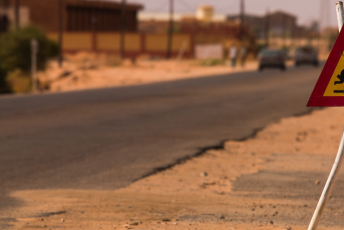|
للنسخة العربية ،انقر هنا
|
In June 2018, the sinking of a boat off the Tunisian island of Kerkennah led to the deaths of 110 mostly Tunisian migrants. In response, Prime Minister Youssef Chahed declared war on migrant smugglers, whom he referred to as ‘merchants of death’. Yet irregular migration figures in Tunisia remain worrying, and political commitment to tackle the phenomenon is far from effective.
Italy remains the principal destination for Tunisian migrants given its geographical proximity. Although the arrival of irregular migrants in Europe was seen to decrease in 2018, some 5 244 Tunisians reached the Italian coast, representing 23.8% of the total arrivals in that country. These figures are the highest since 2011 – the year of the Tunisian Revolution, which led to the ousting of former President Ben Ali – when some 25 800 Tunisian migrants arrived irregularly in Italy.
Tunisians ranked first among the nationalities arriving in Italy in 2018, up from eighth place in 2017, when they represented only 5% of the arrivals. Similarly, the number of boats originating from Tunisia increased six-fold between 2016 and 2018.
Several factors may explain these trends. The aftermath of the 2011 revolution saw a worsening of the economic crisis. This, coupled with political turmoil and a lack of opportunities, has undoubtedly made living conditions more difficult for young Tunisians. Many Tunisians therefore decide to leave the country, often by irregular means.
Another consideration is the regional migration context. In February 2017, Italy and Libya signed an agreement to curb irregular migration. This pushed the flow of migrants travelling along the so-called central Mediterranean route to Europe from Libya to Tunisia. While many migrants previously originated from Tunisia, these shifts means that it has also increasingly become a transit country for irregular migration.
Unsurprisingly, the Tunisian government’s response to migrant smuggling has focused on security measures. Since the Kerkennah disaster, measures have been limited to redeploying the National Guard and police to the island. They had long been absent due to social unrest following the closing of an off-shore petroleum company. Local media have reported several arrests of individuals involved in smuggling activities, particularly in Enfidha, a city close to the coast.
In terms of legal responses, the smuggling of migrants is heavily criminalised in Tunisia under the 1975 law on passports and travel documents. This law was amended 2004 in an effort to domesticate the United Nations Convention against Transnational Organised Crime and its protocol on the smuggling of migrants by land, sea and air.
Regardless of offenders’ motivations or intentions, facilitating illegal entry into or exit from Tunisian territory is punishable by three years in prison. Hosting irregular migrants is punishable by four years in prison, transporting migrants by five years. Sentences reach six years in prison if the crime is committed by an organised group, and 12 years if law enforcement agents are involved. Finally, criminals face 15 and 20 years, respectively, if the crime seriously harms migrants or causes death.
Despite the existence of this legal framework, ‘the criminal justice system often targets the lower echelons of the networks – instead of the brains,’ a Tunisian lawyer told ENACT before a preliminary hearing in a smuggling case in October 2018 in the coastal city Bizerte. In that particular case, migrants paid €1 000 each to be smuggled. The International Organization for Migration estimates the price generally varies from €3 000 to €5 000 per person.
An unpublished 2018 study conducted by the Tunisian Institute for Strategic Studies recommends increasing economic support to marginalised regions, addressing youth unemployment and developing vocational training programmes. Interventions of this kind could help to raise public awareness about the dangers encountered along migration routes. But beyond that, Tunisia should urgently adopt a currently pending national strategy to tackle migrant smuggling.
According to Calogero Ferrara, the public prosecutor in Palermo, Italy, any policy aimed at curbing smuggling should consider creating a protection framework for those willing to cooperate with the authorities. This could include reduced prison sentences and might be a way to ‘obtain precious information from people inside networks’.
The magnitude of the phenomenon indicates that Tunisian authorities should prioritise addressing the smuggling of migrants. Politically speaking, this is a contentious topic and risky territory, given that presidential and legislative elections will be taking place later this year. However, a failure to respond could prove far more damaging, as smugglers continue to act with impunity and put even more lives at risk.
Jihane Ben Yahia, Regional organised crime observatory coordinator – North Africa; and Rim Dhaouadi, researcher; ENACT project, ISS







